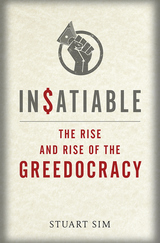3 start with I start with I

In 1912, white land developers founded Idlewild, an African American resort community in western Michigan. Over the following decades, the town became one of the country’s foremost vacation destinations for the black middle class, during its peak drawing tens of thousands of visitors annually and hosting the era’s premier entertainers, such as The Four Tops, Della Reese, Brook Benton, and George Kirby. With the civil rights movement and the resulting expansion of recreation options available to African Americans, Idlewild suffered a sharp social and economic decline, and by the early 1980s the town had become a struggling retirement community in the midst of financial and political crises.
Meticulously researched and unearthing never-before-seen historical material, Ronald J. Stephens’s book examines the rapid rise and decline of this pivotal landmark in African American and leisure history, in the process exploring intersections among race, class, tourism, entertainment, and historic preservation in the United States. Featuring a wealth of fieldwork on contemporary Idlewild, the book also takes a candid look at recent revitalization efforts and analyzes the possibilities for a future resurgence of this national treasure.

Ranging across politics, economic theory, finance, healthcare, the food industry, sports, religion, and the arts, Sim demonstrates how deeply embedded the greed imperative is in human psychology. As he shows, all of us as individuals are capable of greed—usually in small and insignificant ways—but some embrace it to the extreme, and moreover it has thrived as a powerful force in our wider culture and institutions, asserting itself everywhere we go. The food industry encourages us to overeat. The medical industry has increasingly been driven by profits rather than well-being. Corporations hypocritically claim fiscal responsibility, driving down workers’ wages while paying executives—even those who drive the business into the ground—record sums. Looking at larger phenomena such as the increasing wealth gap and exponential population growth, Sim also proffers various ways we can deal with greed in our day-to-day lives.
And as he shows, we must deal with it. Insatiable is a wakeup call to recognize the horrible effects that greed is having on our relationships, institutions, cultures, environment—even on our own bodies—and that we must resist it wherever we can.

In the aftermath of World War II, Prussia—a centuries-old state pivotal to Europe’s development—ceased to exist. In their eagerness to erase all traces of the Third Reich from the earth, the Allies believed that Prussia, the very embodiment of German militarism, had to be abolished. But as Christopher Clark reveals in this pioneering history, Prussia’s legacy is far more complex. Though now a fading memory in Europe’s heartland, the true story of Prussia offers a remarkable glimpse into the dynamic rise of modern Europe.
What we find is a kingdom that existed nearly half a millennium ago as a patchwork of territorial fragments, with neither significant resources nor a coherent culture. With its capital in Berlin, Prussia grew from being a small, poor, disregarded medieval state into one of the most vigorous and powerful nations in Europe. Iron Kingdom traces Prussia’s involvement in the continent’s foundational religious and political conflagrations: from the devastations of the Thirty Years War through centuries of political machinations to the dissolution of the Holy Roman Empire, from the enlightenment of Frederick the Great to the destructive conquests of Napoleon, and from the “iron and blood” policies of Bismarck to the creation of the German Empire in 1871, and all that implied for the tumultuous twentieth century.
By 1947, Prussia was deemed an intolerable threat to the safety of Europe; what is often forgotten, Clark argues, is that it had also been an exemplar of the European humanistic tradition, boasting a formidable government administration, an incorruptible civil service, and religious tolerance. Clark demonstrates how a state deemed the bane of twentieth-century Europe has played an incalculable role in Western civilization’s fortunes. Iron Kingdom is a definitive, gripping account of Prussia’s fascinating, influential, and critical role in modern times.
READERS
Browse our collection.
PUBLISHERS
See BiblioVault's publisher services.
STUDENT SERVICES
Files for college accessibility offices.
UChicago Accessibility Resources
home | accessibility | search | about | contact us
BiblioVault ® 2001 - 2024
The University of Chicago Press









